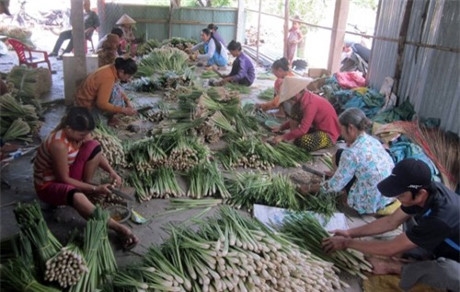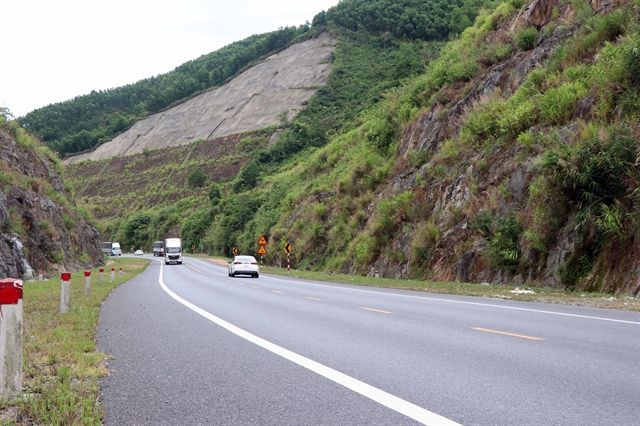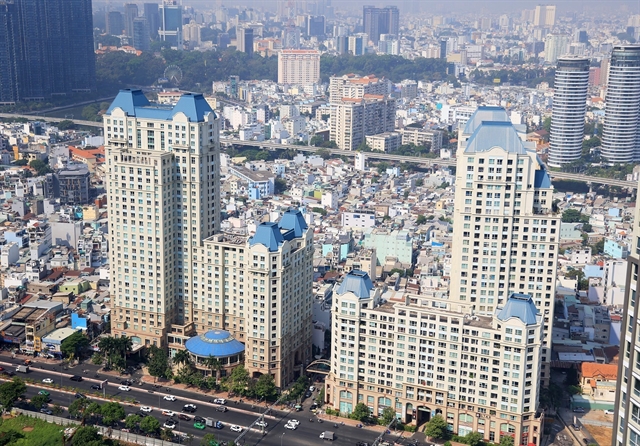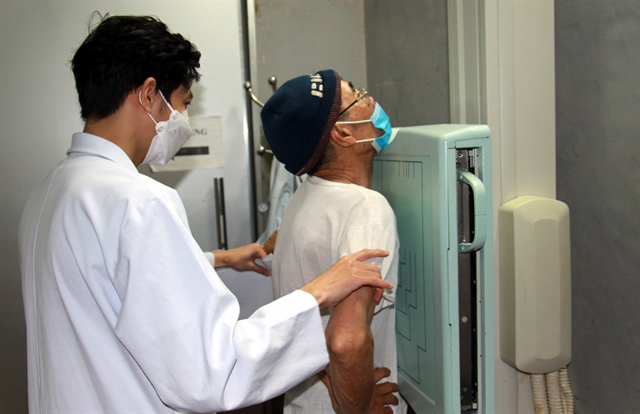 Environment
Environment

Farmers in Tiền Giang Province’s Tân Phú Đông District are earning more income by switching to lemongrass to cope with drought and saltwater intrusion.
 |
| Farmers in Tiền Giang Province’s Tân Phú Đông District are earning more income by switching to lemongrass to cope with drought and saltwater intrusion.— Photo baotintuc.vn |
HCM CITY – Farmers in Tiền Giang Province’s Tân Phú Đông District are earning more income by switching to lemongrass to cope with drought and saltwater intrusion.
The Cửu Long (Mekong) Delta’s islet district faces a severe shortage of fresh water in the dry season, preventing cultivation of rice and other crops.
Trương Văn Hùng, the first farmer to switch to lemongrass in Tân Phú Đông’s Phú Thạnh Commune, said saltwater intrusion occurred on the islet for six months every year, preventing the cultivation of rice.
“Growing rice here has low yield,” he said.
In 2013, Hùng switched to lemongrass on his 2.5 ha paddy field as the herb has short-term cultivation and high yield, and is resistant to drought and extreme weather conditions.
In the first lemongrass crop, Hùng harvested 60 tonnes of stalks and earned a profit of VNĐ150 million (US$6,800).
“The profit is three times higher than from rice,” he said.
Lemongrass is suited to the soil of the islet, especially in Phú Thạnh and Phú Đông communes, said local farmers.
Many rice farmers have grown a lemongrass crop and one rice crop a year or have switched to grow two lemongrass crops a year in recent years.
Nguyễn Tấn Hùng, chairman of the Phú Thạnh Commune People’s Committee, said the commune was severely affected by saltwater intrusion every year, so the development of lemongrass cultivation was beneficial for the restructuring of the commune’s crops.
Last year, prolonged hot weather damaged rice areas in the commune, causing many farmers to switch to lemongrass, he said.
“The Phú Thạnh Commune People’s Committee is encouraging farmers whose paddy fields have low yield and are far from irrigation water sources to switch to lemongrass,” he said.
Ongoing drought and saltwater intrusion in the delta have affected other crops, but lemongrass farmers said they still had a high income as the herb could grow in harsh weather conditions.
In addition, the demand for use as an essential oil and food item has increased in recent years so the price of lemongrass has risen, according to farmers.
Nguyễn Văn Hải, head of the Tân Phú Đông District Agriculture and Rural Development Bureau, said most households that grow lemongrass have high income.
The district lemongrass growing area has increased to 800ha, up 200 ha against the same period last year, according to the bureau.
Tân Phú Đông is the province’s largest lemongrass cultivation area, producing 20,000 tonnes of lemongrass stalks a year.
The district’s lemongrass stalks are mostly sold to HCM City.
Hải said the district has named lemongrass, soursop, coconut and high-yield rice as its key plants in the 2015-20 period.
District authorities plan to develop the lemongrass area to 1,000ha.
To ensure outlets for farmers, local authorities have implemented several measures to boost sales.
The district is calling on companies from other places to sign sale guarantee contracts with farmers.
It is also creating the best conditions for companies to buy fresh lemongrass stalks and process them, to prevent traders from lowering the buying price, Hải said.
“If outlets are guaranteed, lemongrass will contribute a large role to reducing poverty on this islet,” he said. – VNS




.jpg)




